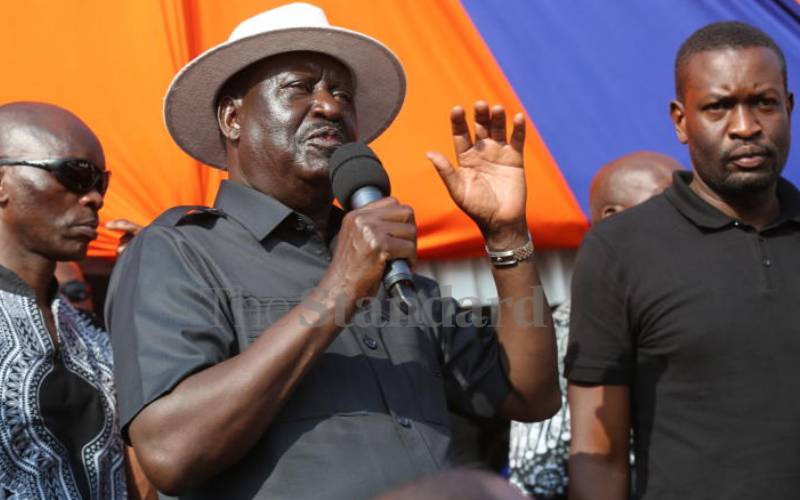×
The Standard e-Paper
Fearless, Trusted News

President William Ruto and opposition leader Raila Odinga are on a collision course over the latter's incessant calls for a referendum on key proposals contained in the recently launched National Dialogue Committee (NADCO) report.
Raila, who has hinted at taking a sixth stab at the presidency in 2027, has rallied his troops in readiness for a plebiscite which could not only have far reaching political ramifications but one that also seeks to alter the country's governance structure.